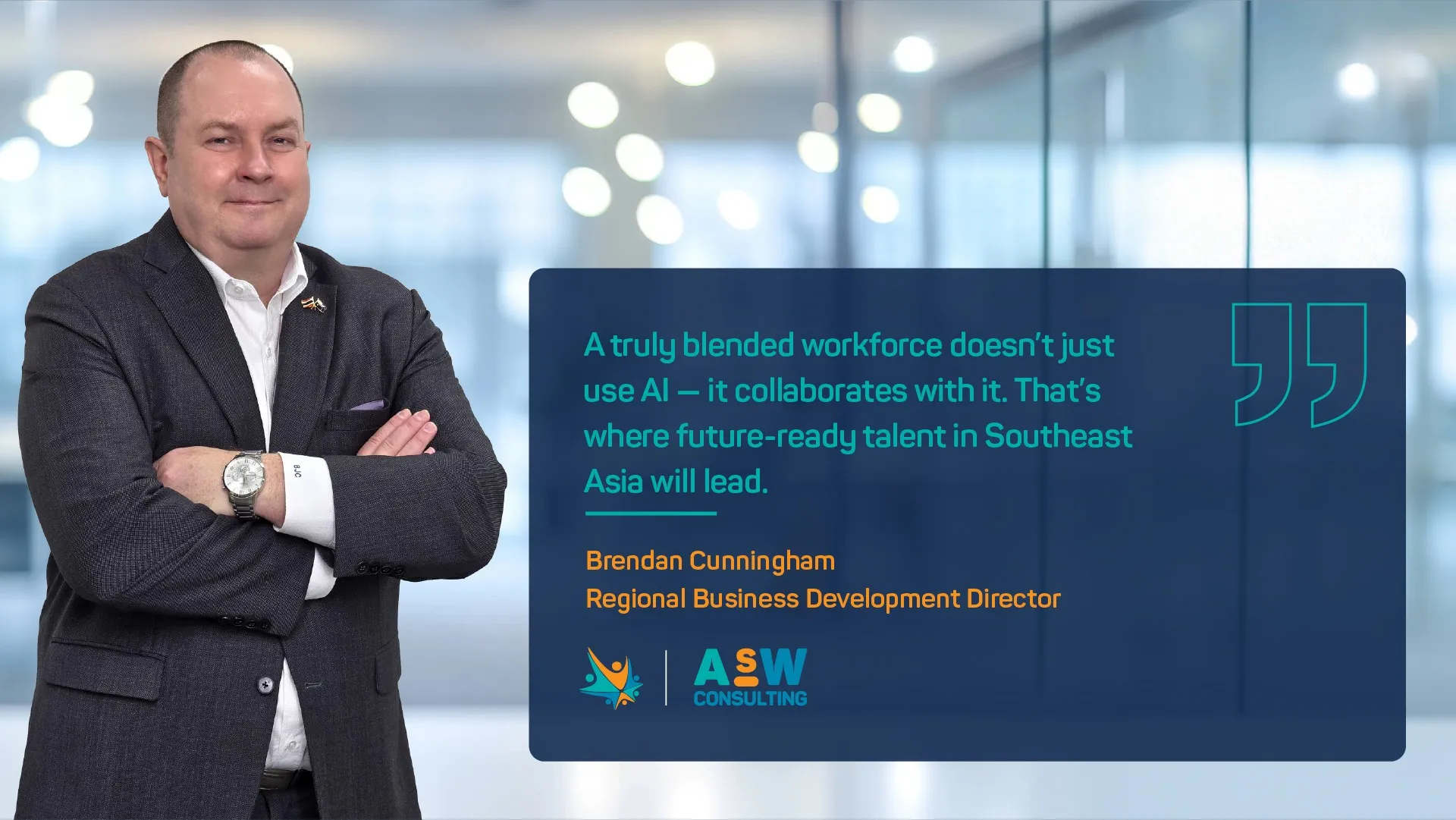Top 10 Skills to Foster a Human-AI Integrated Workforce
Organisations leading the way in integrating artificial intelligence (AI) tools with workflows harness the distinct strengths of humans and technology. Humans bring emotional intelligence, critical thinking, and the ability to handle complexity, while AI contributes to rapid data analysis and powerful pattern recognition. The 2024 PwC Asia Pacific Workforce Hopes and Fears Survey reveals that over 80% of AI users believe the technology enhances their skills, elevates the quality of their work, and boosts their creativity.
Despite these benefits, an ISACA study shows that 89% of digital trust professionals feel they need to upskill in AI within the next two years to remain competitive in their careers. Among the most common applications of AI are content generation (52%), productivity enhancement (51%), and the automation of repetitive tasks (50%).
According to Salesforce, 75% of HR leaders see an increase in soft skills as employees adopt AI. For businesses to thrive and for professionals to stay relevant in this environment, it’s essential to build the right mix of skills in mastering technology and strengthening human capabilities that AI cannot replicate.
Here are 10 key skills that will define success in human-AI collaborative workforce:
1. Digital Literacy
Digital literacy allows professionals to effectively collaborate with AI systems rather than be overwhelmed by them. Workers must be comfortable using cloud-based applications, AI-driven platforms, and basic automation tools.
2. Adaptability
Adaptability is not only about learning new tools but also developing the mindset to embrace continuous change, learn from failure, and stay agile in a tech-driven world. Professionals who are flexible, curious, and open to change are more likely to thrive.

3. Data Literacy
Understanding how to read, analyse, and question data remains a human responsibility. Data literacy helps professionals validate AI-produced findings, spot trends, and make informed business decisions. It also prevents blind reliance on algorithms, promoting responsible AI usage.
4. Critical Thinking
Critical thinking enables people to interpret AI-generated results, challenge assumptions, and make decisions rooted in logic, ethics, and business impact. In a blended workforce, this human ability adds much-needed depth to machine-generated output.
5. Emotional Intelligence
Being emotionally intelligent — with emphasis on empathy, self-awareness, and interpersonal skills — is vital for navigating workplace dynamics, leading teams, and creating inclusive environments. High-EQ employees are often better at collaboration, conflict resolution, and leadership in human-AI blended teams.

6. Tech Fluency
Having a working knowledge of AI, machine learning, and automation tools has become increasingly important. Tech fluency enables workers to collaborate with data scientists or engineers for a better understanding of AI’s impact on their roles.
7. Creativity and Innovation
AI can analyse patterns, but it can’t create truly original ideas. Human creativity remains the foundation of innovation, whether it’s designing a campaign, solving a complex problem, or imagining a new product. In AI-powered environments, creative thinkers can leverage technology to unlock even greater possibilities.
8. Collaboration
As teams become more cross-functional, many AI platforms serve as efficient tools for working effectively across departments. But strong collaboration skills are still needed. This includes clear communication, shared problem-solving, and the ability to integrate diverse viewpoints. Employees must not only work well with each other but also learn how to partner with AI tools in their daily tasks.

9. Ethical Decision-Making
AI can execute tasks based on programmed rules, but it doesn’t have a moral compass. Human workers must guide AI’s use with ethical oversight by understanding the risks of bias, privacy, and fairness. Ethical decision-making is essential in designing responsible AI applications and maintaining trust in tech-driven workplaces.
10. Lifelong Learning
This could be the most important skill of all. As AI and its impact on the workplace continue to evolve, the shelf life of many technical skills will shorten. Organisations who commit to continuous learning for their employees through courses, on-the-job training, or mentorship will stay adaptable and relevant.
Finding future-proof talent with ASW Consulting
Building a future-ready team isn’t just about adopting AI—it’s about finding the right people to work alongside it. At ASW Consulting, our recruitment agency in Thailand and Vietnam, we specialise in matching businesses with professionals equipped for the challenges and opportunities of a blended workforce.
Whether you’re in need of experienced professionals, strategic thinkers, or agile learners, our talent acquisition consultants in Bangkok and Ho Chi Minh City can help. We focus on delivering talent that’s aligned with your business goals.
Contact us through our talent acquisition specialists in Thailand and Vietnam today to discover how we can help you secure highly skilled talent for a smarter, AI-enabled future.








